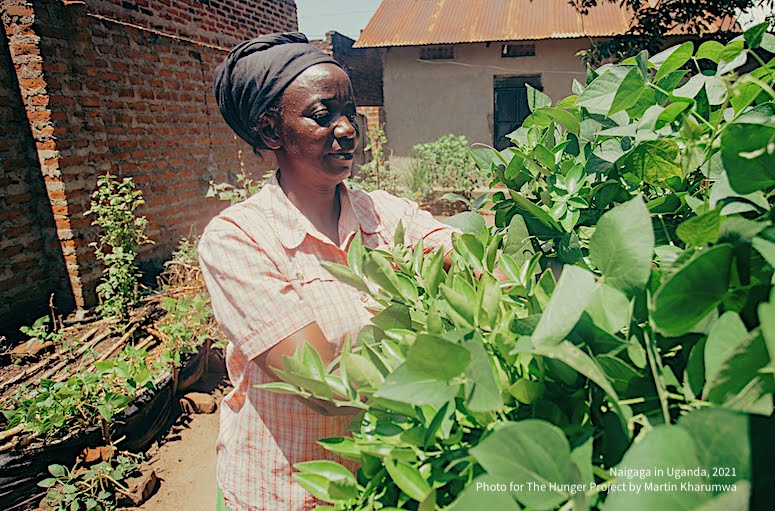Changing Climates: Equality today for a sustainable tomorrow.
On March 8, 2022, The Hunger Project celebrates International Women’s Day in honor of the courage and determination of women and girls around the world.
This year’s International Women’s Day theme, Changing Climates: Equality today for a sustainable tomorrow, recognizes the critical role that women play in creating a healthier, more sustainable planet. Women’s voices and actions are vital to realizing the 2030 Sustainable Development Goals.
Only through achieving a more gender-equal and inclusive world today, will we create a sustainable and equal tomorrow.
Invest in changemakers.
Give now to join us as we stand with the women and girls leading the way to a sustainable future.
Women are disproportionately impacted by climate change and conflict. Inequitable distribution of roles, resources and power all contribute to building systems that leave women vulnerable — especially during crises when resources are scarce.
Empowered women and girls, with access to education and resources, are the key to building sustainable, resilient and equitable systems. Women participating in Hunger Project programs leverage agricultural training to build climate resilience in their communities, improving food security and increasing household incomes. Women with reliable internet access learn and share climate mitagation practices with their own and neighboring communities. Girls enrolled in Hunger Project school programs collaborate to increase school attendance and stop child marriages, creating a future generation of empowered women.
Every woman and girl invested in becomes a catalyst for change.
Women’s participation in sustainability initiatives results in more effective climate action and lasting peace processes. This International Women’s Day, we recognize the critical role that women play in creating a healthier, more sustainable planet. By taking strides to end inequality in their communities, women activists, advocates and community leaders are inspiring change and accelerating our progress towards a more equitable and sustainable world.
Join us this International Women’s Day in a commitment to breaking stereotypes and re-shaping the gender climate change narrative. Invest in programs that place women at the forefront of their community development and a more sustainable tomorrow.
How does gender equity build climate resilience?
The vast majority of people in rural communities rely heavily on agriculture and their well-being is closely tied to the natural environment. And because women in these communities are disproportionately denied access to resources, a significant number of vital food producers are unable to build climate resilience through improved agricultural practices. Read: A Woman’s Voice for Climate Justice.
Follow our social channels to learn more about our work with incredible women around the world. Use the hashtag #IWD2022 to share your commitment to gender equality.
More about what we do.
- In India, The Hunger Project builds leadership skills among women who have been systematically denied information, freedom of motion and a voice in decision making. We support the women electorate, encouraging voter participation among women and the election of women leaders to all panchayat (village council) seats.
- At epicenters across Africa, tens of thousands of women food farmers are increasing their incomes and strengthening their clout in the marketplace through our Microfinance Program, training, credit and savings program. Our Women’s Empowerment Program throughout Africa (and specialized animator trainings worldwide) encourage women to seek positions of leadership and train all of our partners, women and men, to take responsibility for improving lives in their communities.
- In Mexico, we work with rural and marginalized communities. The first step is always to engage in Vision, Commitment and Action Workshops to overcome mindsets of resignation and gender inequality in areas where women face the double discrimination of being women and indigenous.
- In Bangladesh, programs like our Safe School for Girls Campaign work with students, teachers, parents and local communities to stop child marriages and promote opportunities for girls. Since the program’s launch, more than 25,000 people have been trained in Safe School for Girls workshops.
- As Secretariat of the Movement for Community-led Development (CLD), we leverage partnerships with like-minded organizations around the world to take community-led development to “transformative scale” – beyond small projects, to a level that transforms society.
Photo: Naigaga in Uganda, 2021. Photo taken for The Hunger Project by Martin Kharumwa.

